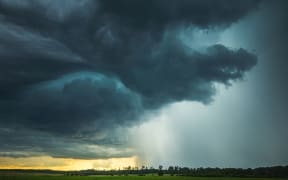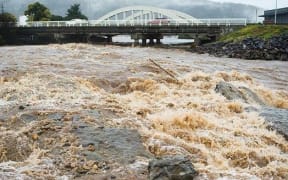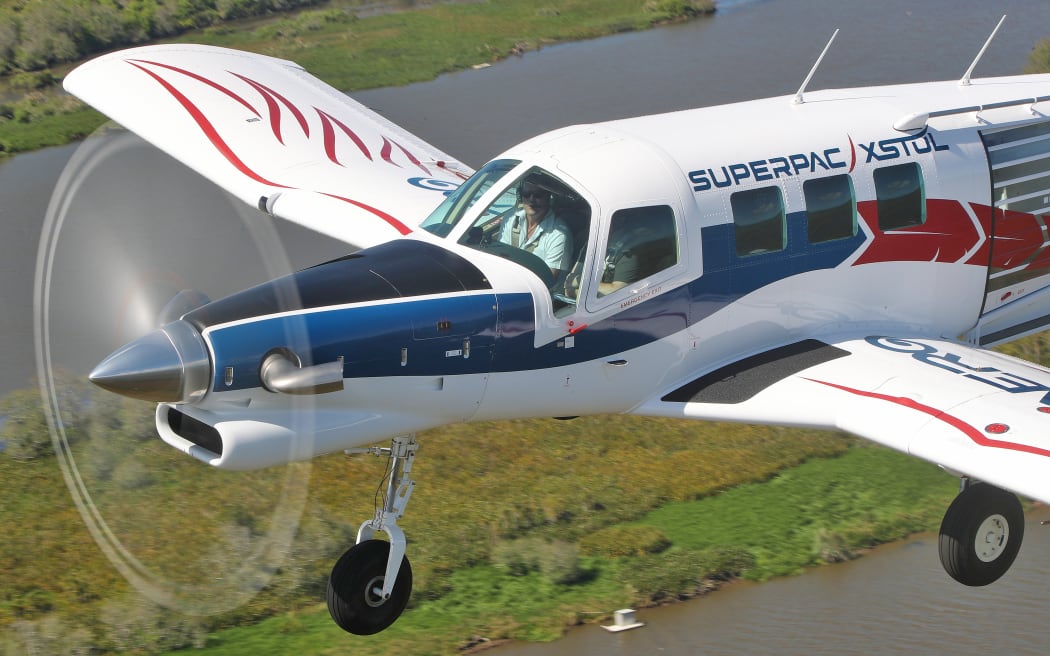
NZAero's new aircraft. Photo: Supplied / Gavin Conroy
New Zealand's only commercial aircraft manufacturer is hoping to win a contract to provide new aircraft for the Thai government's rainmaking department.
Waikato-based NZAero, which replaced the former Pacific Aerospace, was taking part in the New Zealand government's business delegation to Southeast Asia.
Thailand uses artificial rainmaking as a tool to combat the effects of drought on its agricultural sector.
What's this rainmaking business?
Cloud-seeding, as it is known, was used by many countries around the world, but had not really taken off in New Zealand.
In 2022, Waikato University associate professor Earl Bardsley explained to RNZ how it worked.
"You have high clouds with supercooled water droplets in the upper portions of the cloud and if you introduce a nuclei into that supercooled water, something that's rather similar structure to an ice crystal - like silver iodide has been used a lot - that can trigger off a freezing of a small number of those supercooled water droplets and they splinter off when they freeze into other pieces of ice and that sets off a type of chain reaction.
"So all of a sudden the whole upper portion of the cloud becomes converted from a population of supercooled liquid water droplets to ice fragments and the whole thing becomes unstable and the cloud grows, and that induced vertical instability is what generates the rainfall."
How is NZ involved?
In a media release, NZAero chief executive Stephen Burrows said Thailand could reach temperatures as high as 54C. Precipitation was becoming less frequents and droughts more prevalent.
"At the start of every year Thailand's Department of Royal Rainmaking and Agricultural Aviation initiates a cloud-seeding programme to stimulate artificial rain and dampen down fine particulates in the air caused by vehicle emissions and agricultural practices, as well as mitigating dry weather conditions in the main crop-growing areas.
"This operation utilises a fleet of 30 rainmaking aircraft to ease the impact of climate change on the country's farming sector and prevent hailstorms and forest fires in some regions of the country.
"New Zealand has a 50-year history as an aviation supplier to Thailand - with their air force having purchased 72 aircraft and millions of dollars of parts from us in that time."
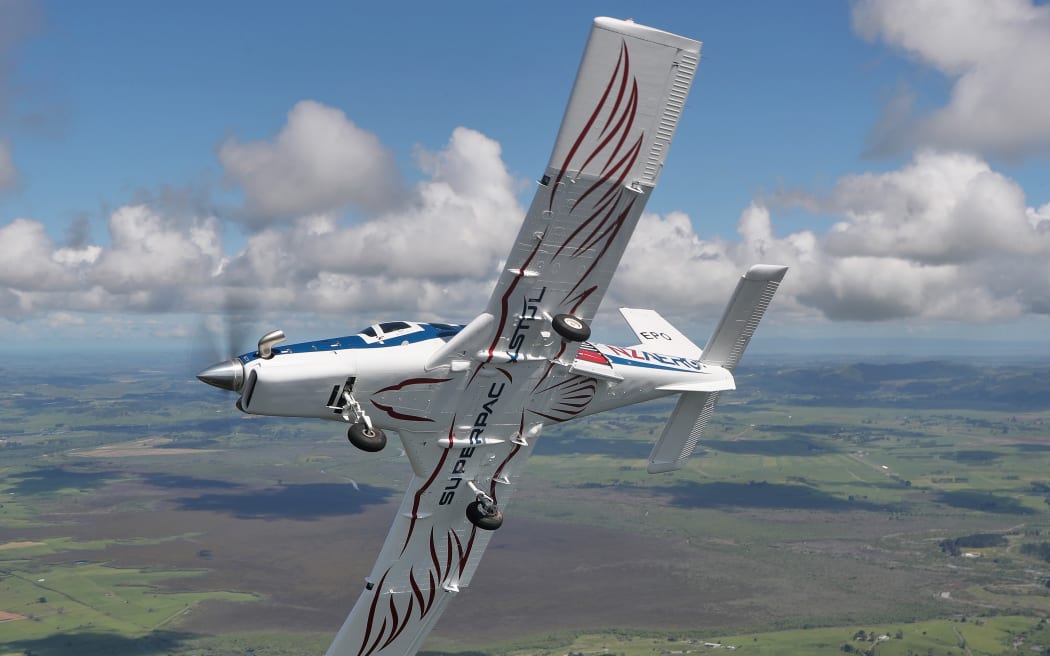
The plane could be rapidly reconfigured and used for other purposes, including firefighting. Photo: Supplied / Gavin Conroy
Burrows told RNZ its new SuperPac extremely short take-off and landing aircraft, which had been developed over the past two years, was ideal for Thailand.
"The SuperPac's really been developed for hot and high, humid conditions so perfect for places like Southeast Asia.
"Southeast Asia has been a major customer of New Zealand for the last 50 years, especially Thailand. Ten percent of the total export of aircraft product from Hamilton has gone to Thailand."
Burrows said the aircraft was multi-use and could be "rapidly reconfigured" for humanitarian and defence roles. Such roles included being used as a medivac, border patrol, intelligence search and rescue, skydive deployment, pollution control, and firefighting.
"They could reduce their fleet size by about 50 percent with each SuperPac being capable of delivering twice the payload of their current aircraft and convert the aircraft from rain making to pollution control or even firefighting - within half an hour.
"We are also looking at customising rainmaking technology for this market using an aircraft-mounted flare able to be deployed from the back of the plane into the atmosphere, during droughts or periods of intense air pollution."
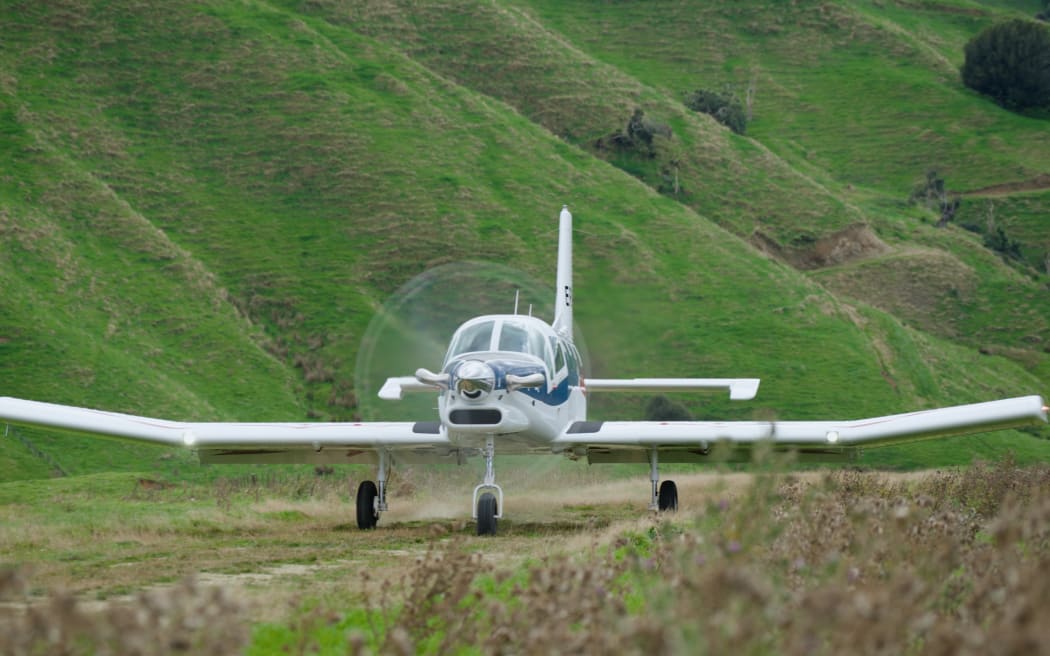
The plane has been in development for the past two years. Photo: Supplied / Gavin Conroy
In late 2023, an Official Information Act to the Ministry for the Environment requested information of New Zealand's use of cloud-seeding.
In response, the ministry said: "There is no evidence to support the occurrence of cloud seeding, geoengineering, or any other weather modification methods by the New Zealand Government."
The business delegation, led by Prime Minister Christopher Luxon, is currently in Singapore.
The group will fly to Thailand next.

